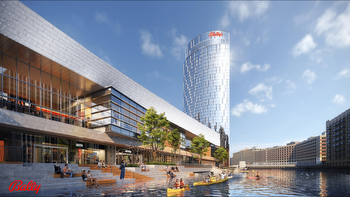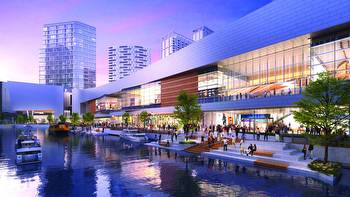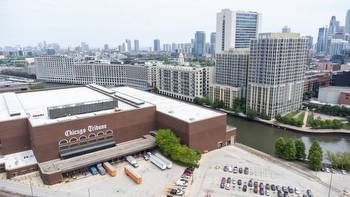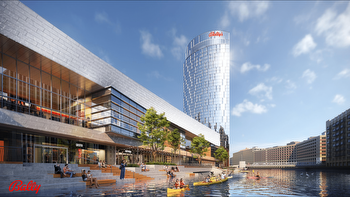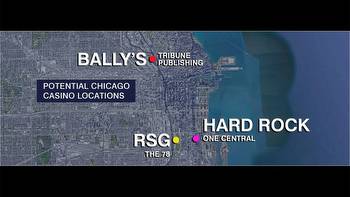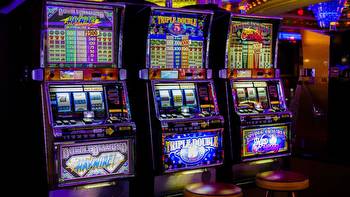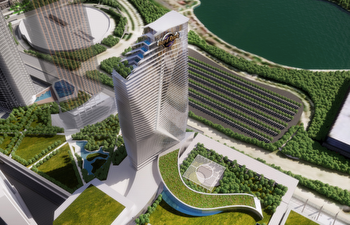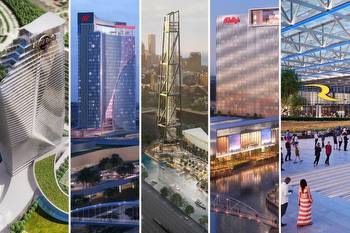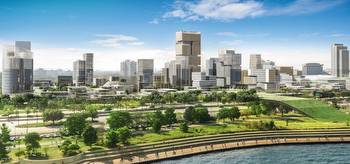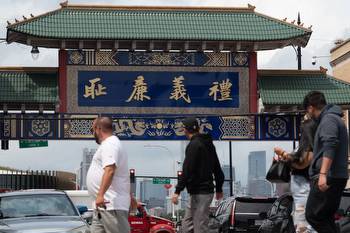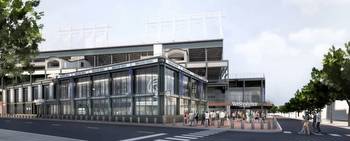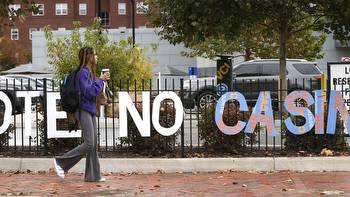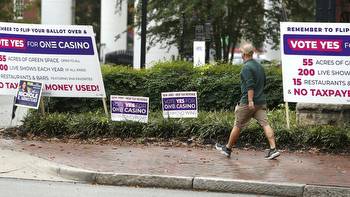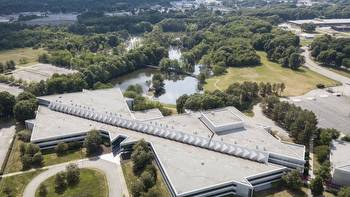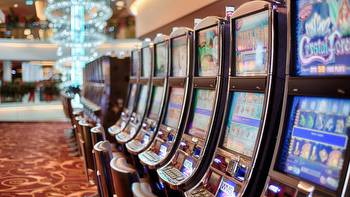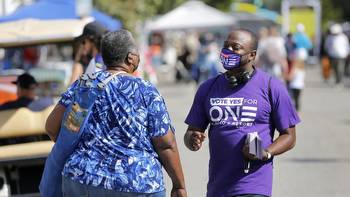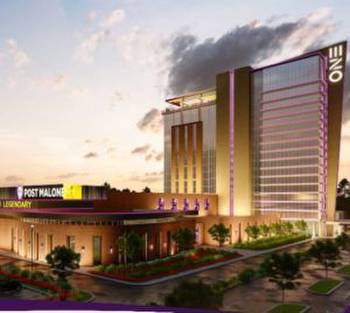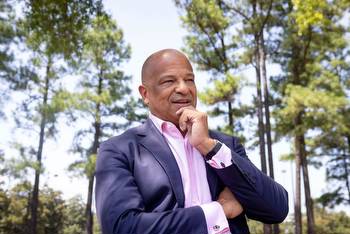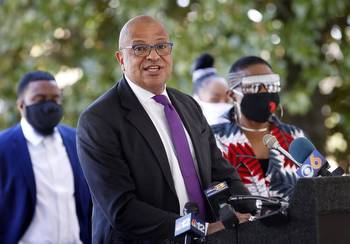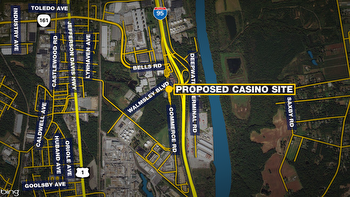US cities look to casinos for economic development
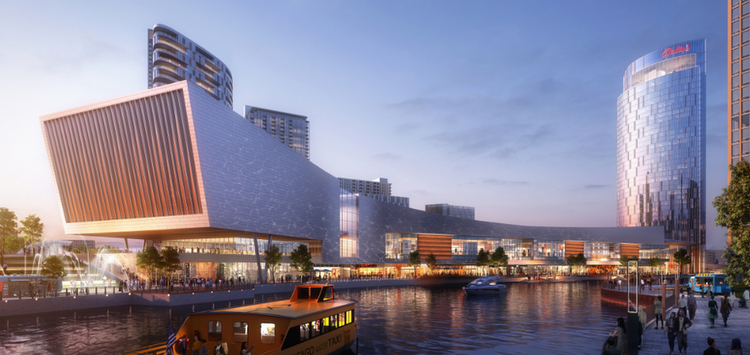
Blinking slot machine lights and the sound of shuffling cards may be coming soon to Chicago's River West neighborhood following the city council’s approval last week of the city’s first casino. Chicago is the most recent U.S. city to pursue an urban gaming venue to drive economic development.
The casino industry is one of the fastest-growing in the world, according to a studythe journal Nature published in February about the proliferation of new casinos in the northeastern U.S. It references a “flood of casinos," including an "influx of urban casinos in major metropolitan cities” since the early 2000s, driven in large part by changes to state gambling regulations aimed at creating new state and local revenue streams.
Harrah’s opened a casino in New Orleans in 1999. Columbus, Ohio’s Hollywood Casino opened in 2012 with the goal of revitalizing an economically depressed neighborhood. Horseshoe Casino, Baltimore’s first, opened in 2014. Richmond, Virginia, is pursuing a casino. Each of these is in or close to the city’s downtown.
“You're seeing a wholesale expansion of gaming across the country,” said Debbie Laurie, city manager in Bangor, Maine.
After a state referendum legalized casino gaming in Maine, Bangor’s main street became the site of the first state-licensed casino. The city tied the funds the casino project generated to redeveloping its aging civic center and auditorium to bring new investments and renewed energy to the city’s downtown.
“Our desire was to create an investment in our community that would foster enhanced economic development,” Laurie said. “We wanted to ensure that our restaurants would have business, our service centers would have business, our hotels would have business. That was how we began and how we continue to operate to this day.”
Bally's plans to develop and operate Chicago’s casino on a parcel of industrial land that previously housed a Chicago Tribune publishing facility.The $1.7 billion entertainment district proposal encompasses a hotel and spa, theater, park, outdoor music venue, six restaurants and more. It is marketed as a job creator that will rejuvenate the area and provide economic benefits to the city.
Bally’s made a $40 million upfront payment and committed to paying the city $2 million per year after that. But cities must consider many factors when determining a casino’s value to the community, experts say.
“Whether a casino truly adds to a local economy is not measured just by its profitability and its tax payments, but by how many people it draws in that are not from the region,” said Brett Theodos, senior fellow and director of the Community Economic Development Hub at the Urban Institute. “If they can become a draw for tourists who are going to come and spend money, that really could add in a positive way. But if you're just essentially drawing people who live there to spend money, it doesn't really add to the regional economy.”
The concept applies to other large projects, like ballparks, as well, he said.
Chicago cites the casino as a way to “shore up” its pension funds, although Theodos questions whether that is a reasonable expectation.
“Single projects are not able to fix underfunded pensions, even if they perform well,” he said.
The desire to capitalize on a casino’s proceeds as much as possible is understandable because cities generally are “desperate for new revenue sources,” Theodos said. Financial success lies in the overall project planning and execution, ongoing partnerships and oversight.
“Casinos are not unambiguously a pot of gold at the end of the rainbow for local governments to raise money,” he said. “That said, they can’t be fully dismissed as empty promises, either. They can be financially successful.”
Chicago touts its project as one of the most equitable casino developments in the country. That’s not been an explicit goal of most casino projects, said Jaime Dominguez, Northwestern University associate professor of instruction in the political science department.
Bally’s Chicago proposal includes a plan to create multigenerational wealth for minority investors through a crowdfunding initiative that allows Chicagoans to buy fractional ownership of the facility for as little as $250. It committed to 60% minority hiring, targeting potential employees living in Chicago's lowest-income, highest-unemployment neighborhoods. The River West site is near major bus and train lines, making it accessible to workers in all parts of the city.
Dominguez points out that Chicago’s Black and Latino populations combined are nearly two-thirds of the entire city’s population, so the casino project’s hiring should reflect that to ensure equity.
“You never have 100% parity,” Dominguez said. “But the extent to which those job opportunities mirror the demographics of the city, that's what I'm interested in — and in seeing, going forward, whether or not that actually plays out.”
Laurie says incorporating equity into casinos and other large-scale projects wasn’t a consideration 15 years ago, during Bangor’s casino development, but it has grown in recent years.
“At that time, the focus was mainly on economic development and how we could create opportunity for our businesses,” she said. “If we were talking about it now, perhaps we’d be having more conversations about equity in job creation.”
Baltimore’s recently released economic development plan aims to better incorporate equity than past plans, including in the hospitality and tourism sectors. It specifically mentions continued work to build out the Horseshoe Casino entertainment corridor and the use of gaming revenue to improve neighborhoods near the casino. Some casino tax revenue has funded community grants for nutrition education, housing, environment, and youth initiatives.
Casino location is another equity issue. The study in Nature examined the impact of casinos on urban communities and concluded that those built in the Northeast — including New York, Philadelphia and Baltimore — typically are in low socioeconomic communities. These communities tend to have some existing gambling culture, according to the study, and increased access to casinos could increase “problem” gambling, or addiction, in disadvantaged neighborhoods.
“People who are underserved and under-resourced sometimes want to roll the dice ... hoping that they'll win big,” Dominguez said. “But more often than not, they don’t. It could lead to further deterioration of their financial situation or the deterioration of their neighborhood.”
Still, Dominguez doesn’t anticipate that negative outcome with the Chicago casino.
The Nature study also found that casino developments promise economic development for distressed communities prior to being built, but certain neighborhood benefits are unsustainable. Some Columbus residents spoke with WOSU in 2017, five years after its casino opened, and questioned the level of neighborhood revitalization that had occurred,pointing to an empty shopping mall and shuttered big-box stores nearby. The story notes that the area saw a 9% increase in jobs and 40 new businesses, but the jobs and the revenue have not met projections.
Keeping negative factors in check is possible and has been done, Theodos said, but it relies heavily on strong planning early in the development process.
“I have been in some urban casinos that are just depressing and lack vibrancy … and some of the urban casinos are posh,” Theodos said. “A lot depends on where it is and how it's designed.”
Cities should perform thorough due diligence when choosing a casino partner, these sources say. Laurie said Bangor has a “good working relationship” with its operator, Hollywood Casino. Collaboration is crucial for meeting mutual goals and keeping the community’s interests front and center, she added.
“Ensuring that communities have a relationship with corporate partners that are going to be part and parcel of your community is really important,” Laurie said. “As long as you have a willing partner, you can create that collaboration up front.”
Another consideration is whether the neighborhoods surrounding a casino receive spillover benefits, or if those go to the city as a whole, Theodos said. For example, some casinos are designed to be self-contained fortresses, whereas others are pedestrian- and transit-friendly destinations that connect to other businesses within the community. It all depends on how much a casino integrates into the neighborhood.
“To raise equity, there needs to be a financial stake in the ownership or a mechanism to return profits in some dedicated way — or real integration into the neighborhoods such that people would be more likely to frequent other businesses and the neighborhood’s homeowners get value,” Theodos said.
Some communities raise concerns about the potential for higher crime near casinos, but the sources interviewed for this story say modern casinos are high-security operations, and crime generally isn’t higher there than in other venues where people gather en masse, such as sports stadiums or concert venues. Those venues also are comparable to casinos on environmental issues and energy consumption, they said.
Dominguez warns, however, that casinos and other high-cost projects bear a high risk for corruption by political figures involved in their development. That could influence which vendors receive contracts and whether economic and equity promises are fulfilled.
Theodos cautions that market saturation occurs quickly: Establishing additional casinos in close proximity can result in diminishing returns. Thus, new casino planning should look at both short-term and long-term viability.
"It's part of a larger development strategy, and there is an appetite for gambling," he said. "But there are a limited number of times you can go to this well; there is not an inexhaustible demand for gambling.”










